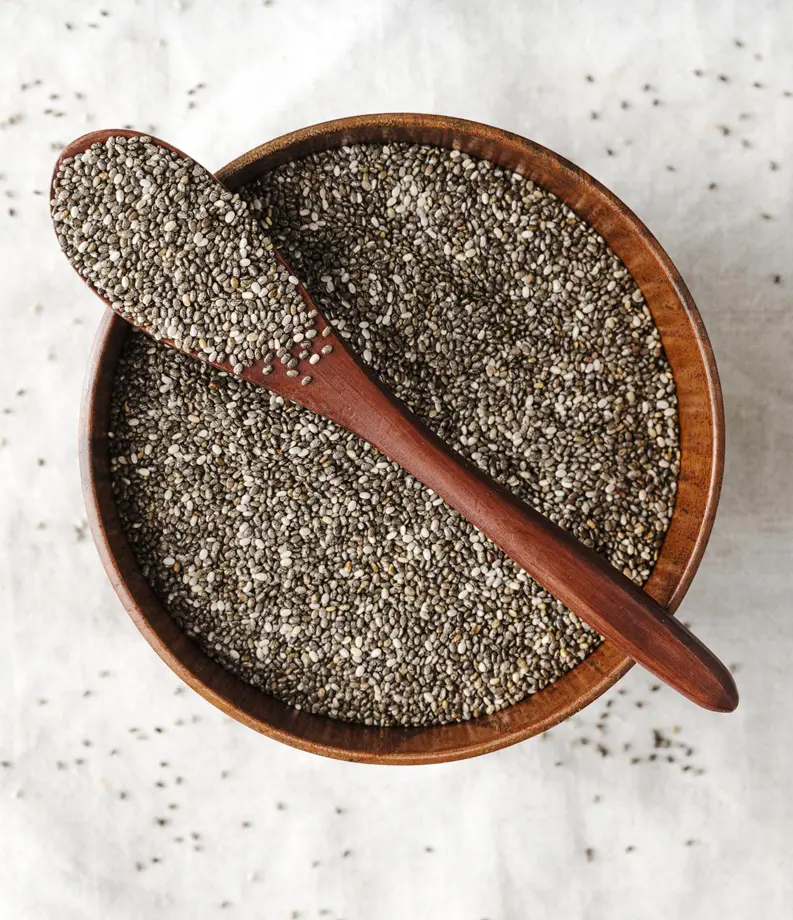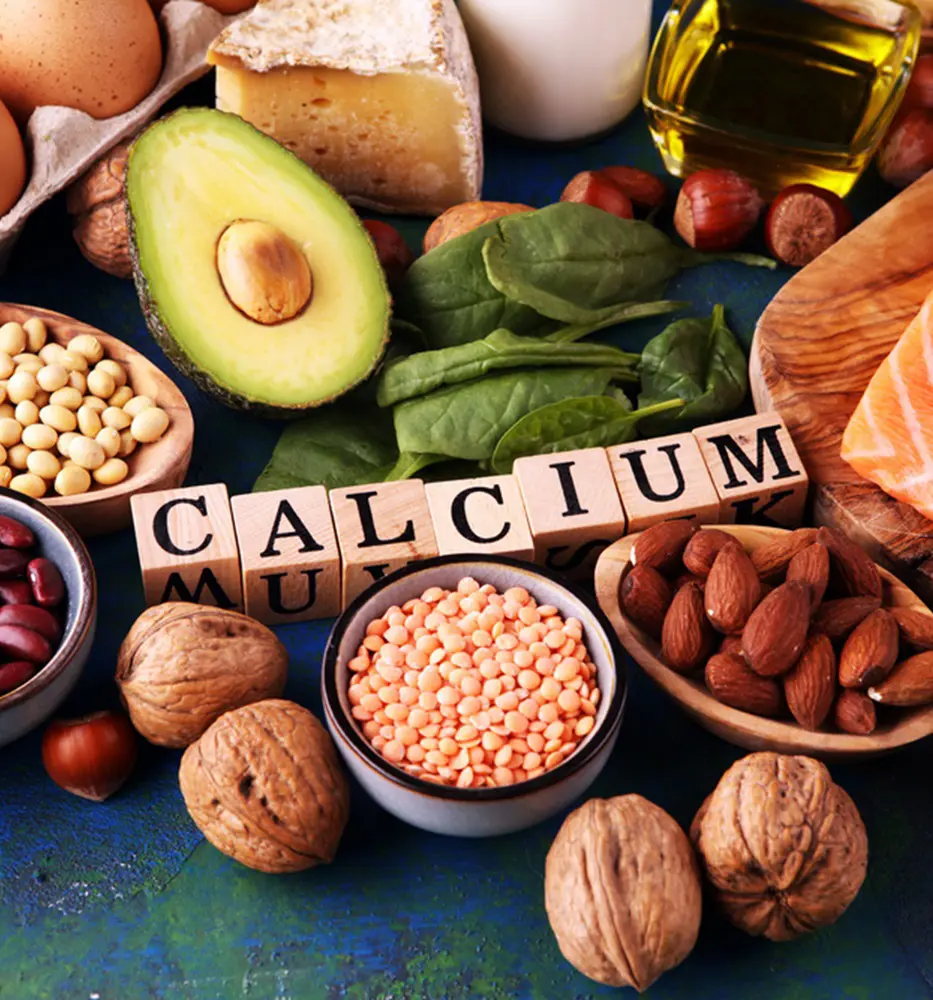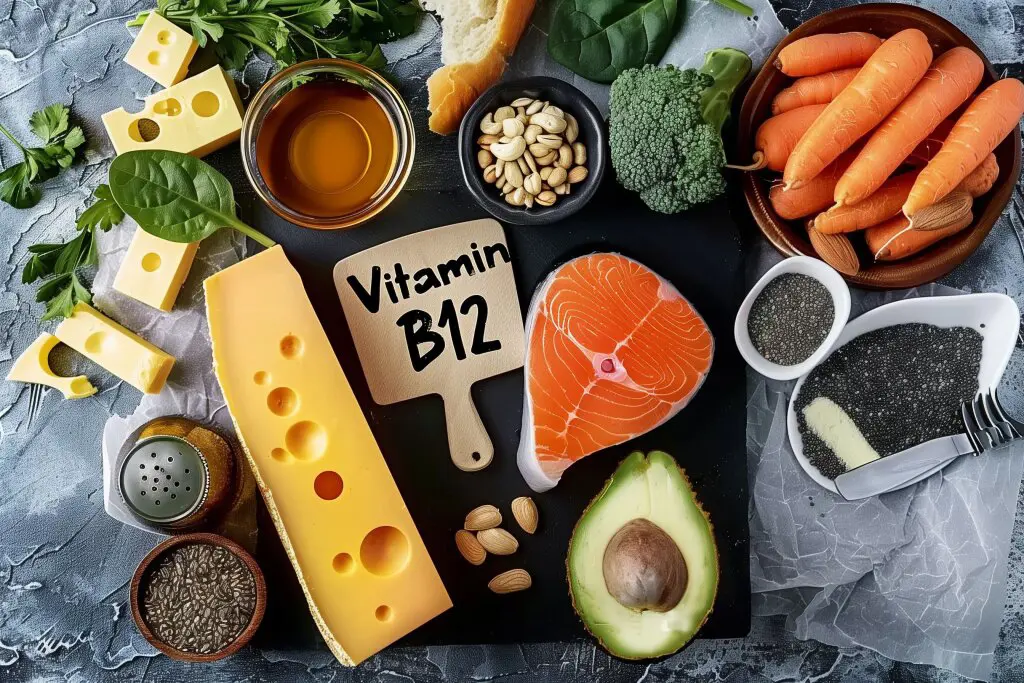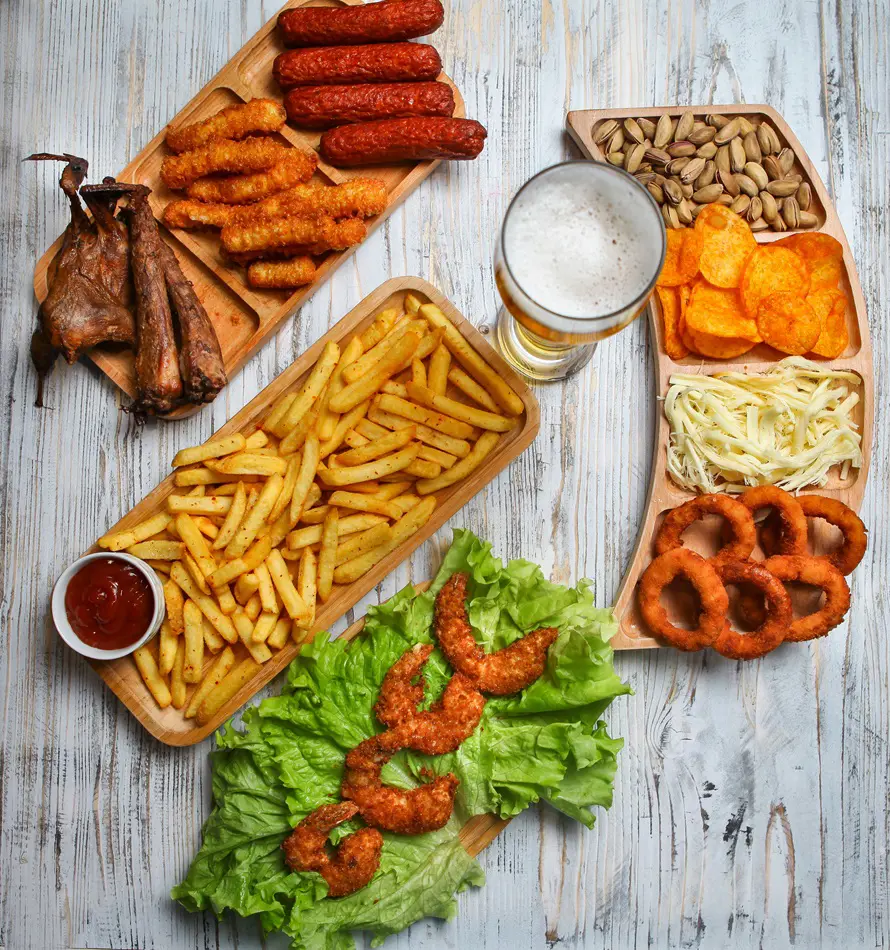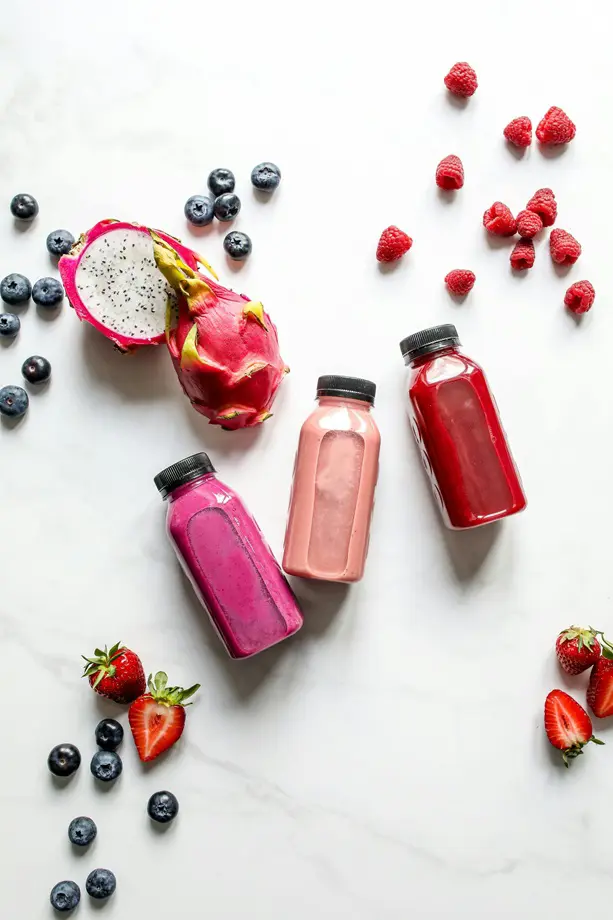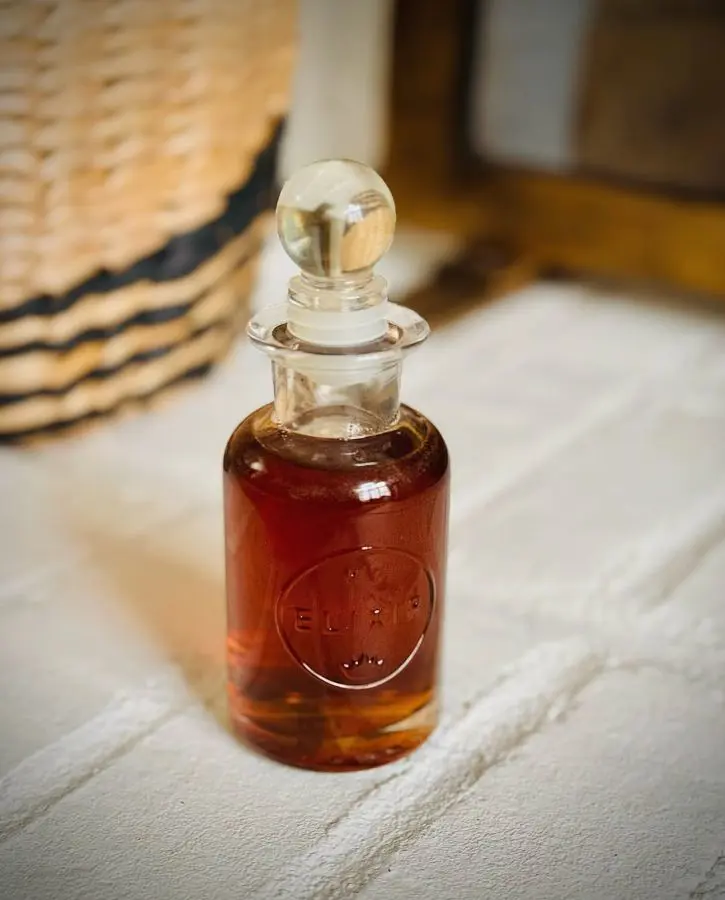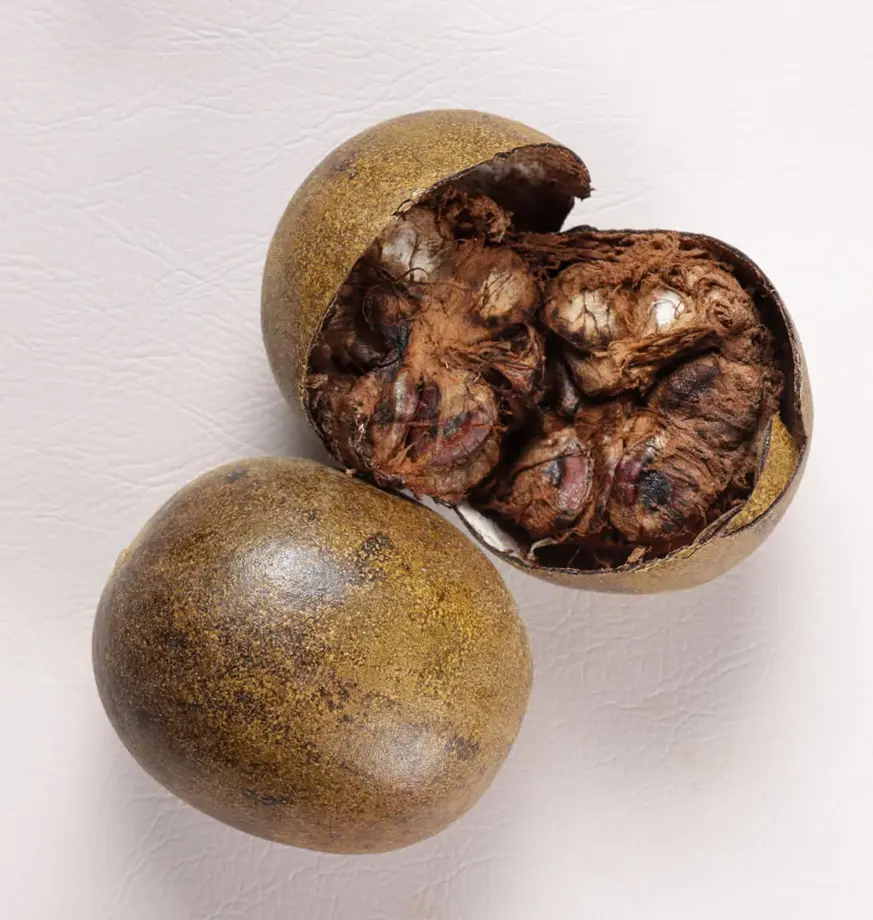20 Creatine High Foods That You Can Include In Your Diet
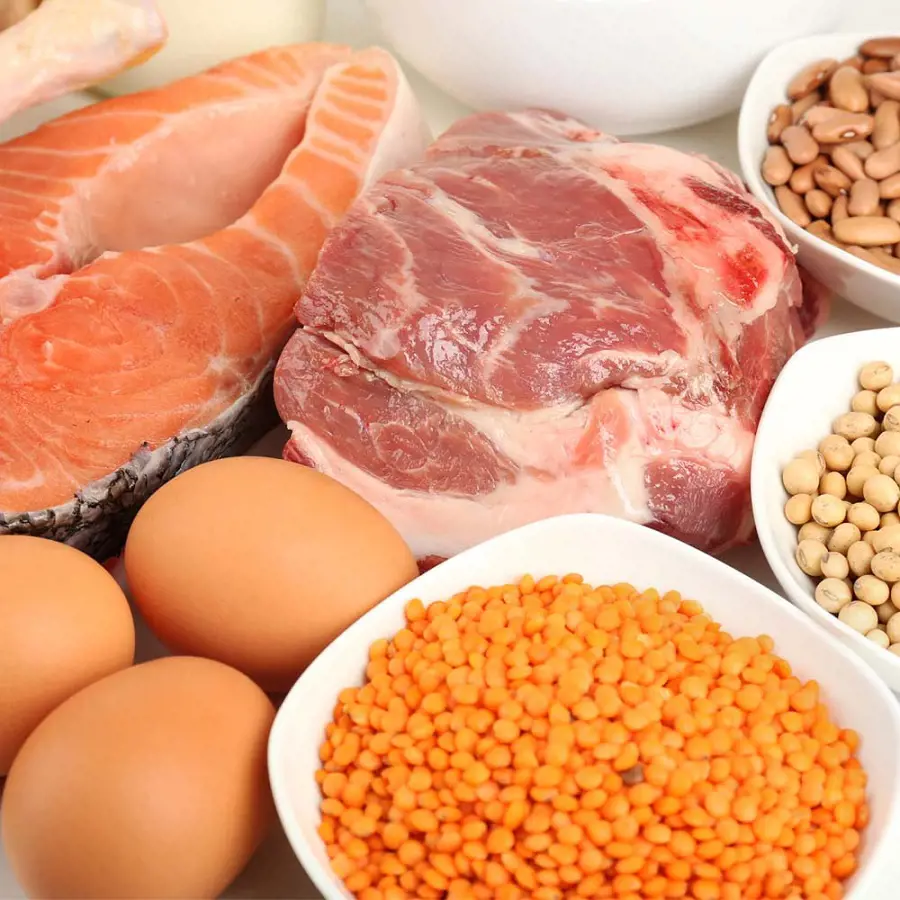
This post may contain affiliate links. If you make a purchase through links on our site, we may earn a commission.
Creatine high foods consist of meat, fish, seeds, and nuts. It is an amino acid that is mainly found in our muscles and brains. Most people get creatine through seafood and red meat and some choose to get it from supplements.
The body's liver, pancreas, and kidneys also can make about 1 gram of creatine per day. Diet plays a crucial role in meeting your body's creatine needs. While supplements are popular, getting creatine from certain foods is considered good as it is an effective way to get the required amount of creatine. In this article, we are going to go over the top 20 foods with creatine you can add to your diet.
1. Herring
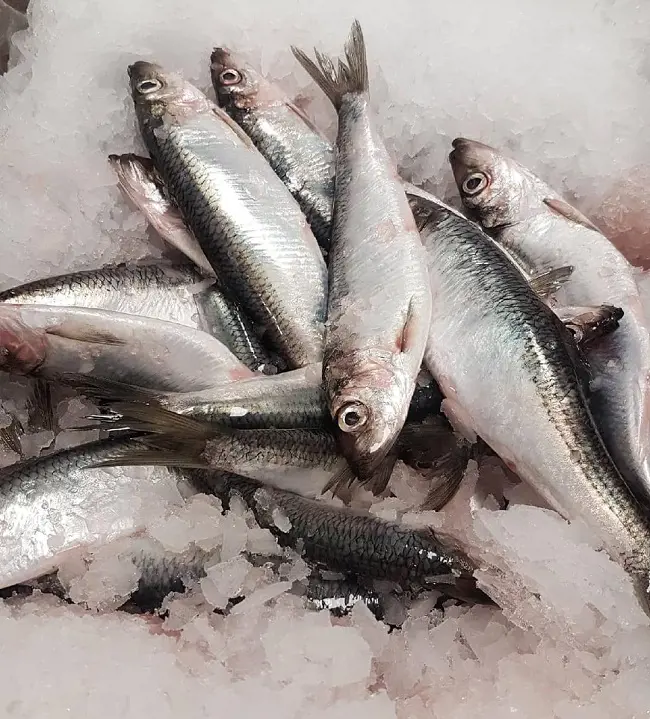
Herring is a type of forage fish known for its delectable, flaky, and mild flavor. It is classified as a super fish since it is rich in creatine, amino acids, antioxidants, and omega-3 fatty acids. With 3-4.5g of creatine in Herring, you could get enough creatine to match a standard supplement serving with a single pound of herring.
This seafood can be a perfect substitute for those who do not like to eat meat as it is one of the cleanest ocean fish containing very low amounts of mercury. Herring can also be used either in dried or pickled form, which is both delicious and nutrient-rich in nature.
2. Chicken
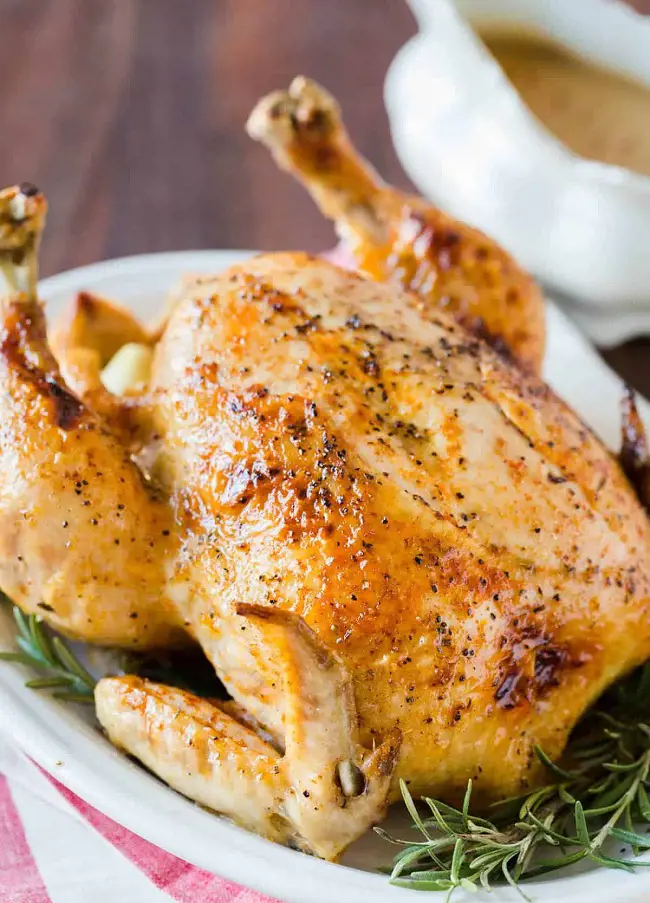
Chicken is one of the most common types of poultry among all the meat consumed in the world. It is a great source of lean meat which is high in protein and creatine and is considered a healthy alternative to red meat.
It is traditionally a staple protein in most athletes' diets due to its high versatility and protein content. It contains somewhere around 1 gram of creatine, 4g of fat, and 21 g of protein in 100g of chicken breast.
3. Pork
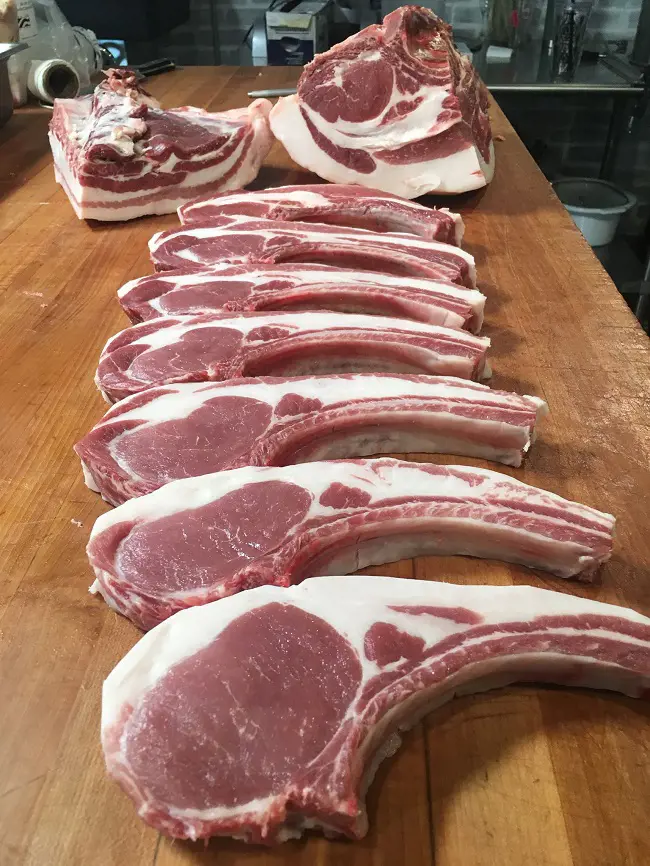
Next on our list is pork, which appears to have high creatine content content. It contains 2 grams of creatine in pork with 14g of fats and 18g of protein per 100g serving of ground pork. Pork is also rich in micronutrients like calcium and potassium.
Including pork in your diet can be a great way to boost your strength, increase lean muscle mass, and aid in muscle recovery during and after exercise. This is due to its high creatine content and abundance of vitamins and minerals. Pork is especially great for bodybuilders, athletes recovering from injuries, individuals who have undergone surgery, or anyone looking to build or repair muscle tissue.
4. Beef
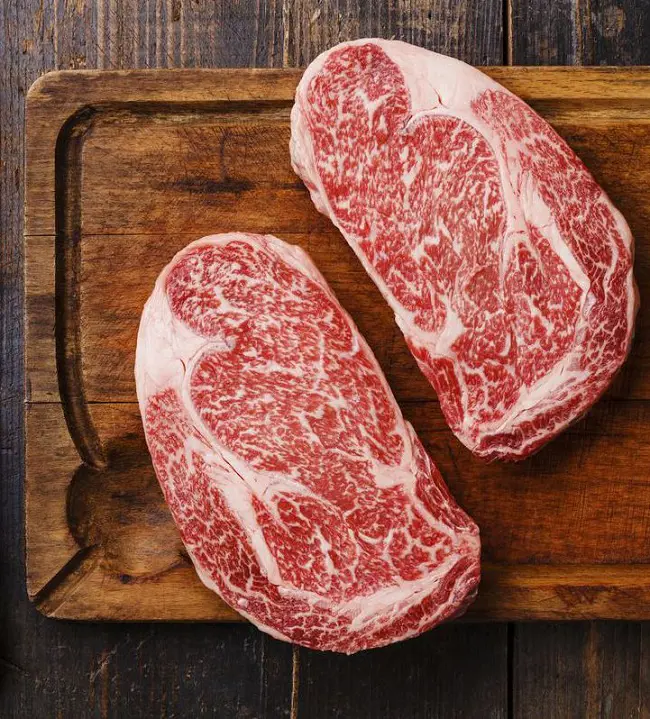
Beef is a fantastic source of protein, amino acids, and creatine which make it one of the best foods for muscle building and exercise performance improvement. Beef contains a high amount of dietary creatine with an average of 4.5 grams of creatine per kilogram of meat.
- Steak: Contains 5g of creatine per kilogram of meat.
- Top Loin: Contains 2.93g of Creatine per kg.
- Round Tip: Contains 2.95g of creatine per kg.
- Ground Beef: Contains 2.53g of creatine per kg.
5. Salmon
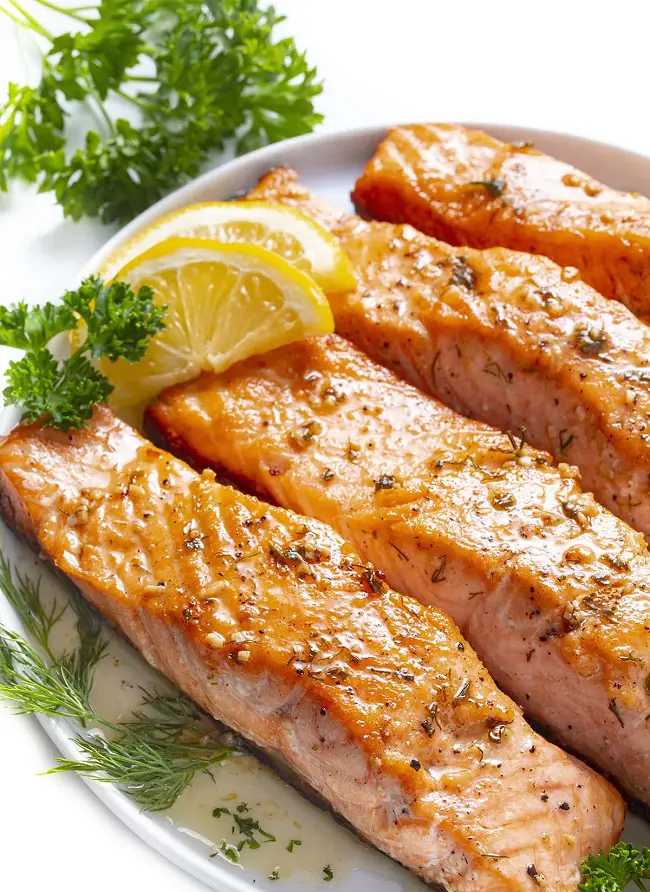
Salmon is another high-nutrient creatine-rich food and is this popular healthy fatty fish that is rich in omega-3 fatty acids. Salmon contains 2 grams of creatine, 6g of fat, and 20g of protein in one 100g serving as well as plenty of micronutrients like potassium, calcium, and selenium.
It also helps to maintain muscle mass during weight loss and can supply energy to the parts of the body where it is needed. The omega-3 fatty fish also contains astaxanthin, an antioxidant that is good for muscles, heart, and skin. Similarly, wild salmon is considered to be the best salmon to eat as it contains more vitamin A, D, and creatine content.
6. Tuna
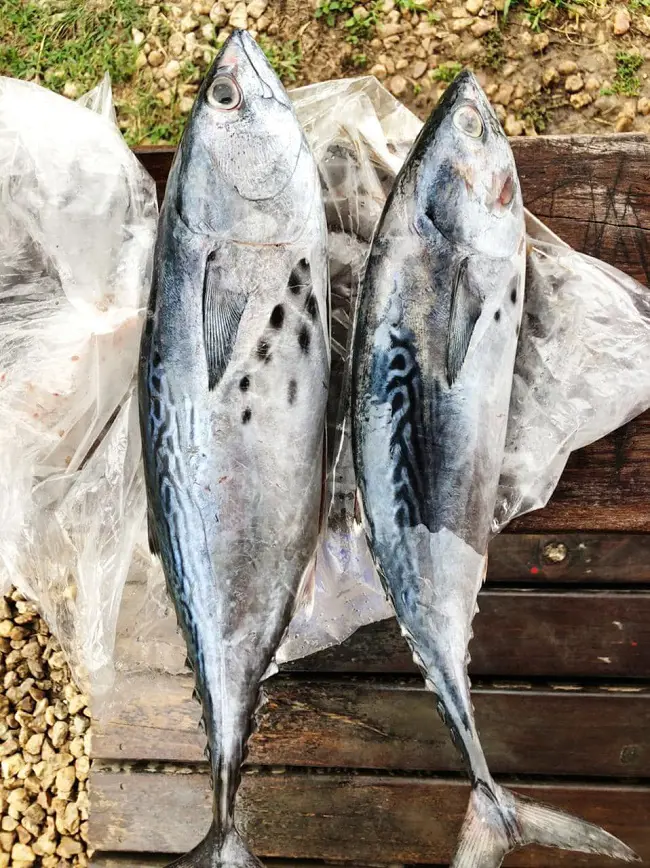
Tuna is a saltwater fish and there are various kinds and sizes of tuna available, ranging from the Bullet Tuna to the Atlantic Bluefin Tuna. It has 4g of creatine per raw kilogram and 341 milligrams per cooked serving.
This expensive seafood is a rich source of vitamin B6, cobalamin, magnesium, and creatine. It has more red muscles as compared to other fish which makes it a tasty option even though it has a little fishy smell. Tuna can be consumed in a variety of ways, the most common way is combining it with salads and sandwiches.
7. Turkey

Turkey is a great addition to any diet, especially when taking creatine. It is an excellent source of lean protein and essential nutrients with very low-fat content. Similarly, 1 pound of turkey can contain up to 5 grams of creatine, Vitamins B, Zinc, and phosphorus that helps in muscle growth, energy production, and overall health.
Additionally, turkey is extremely high in protein as compared to other types of meat. So, this can be a plus point for those who are extremely conscious of their weight as well as want to build muscle mass. It can be prepared in various ways, including sandwiches, salads, steak, roasting, or baking.
8. Cod
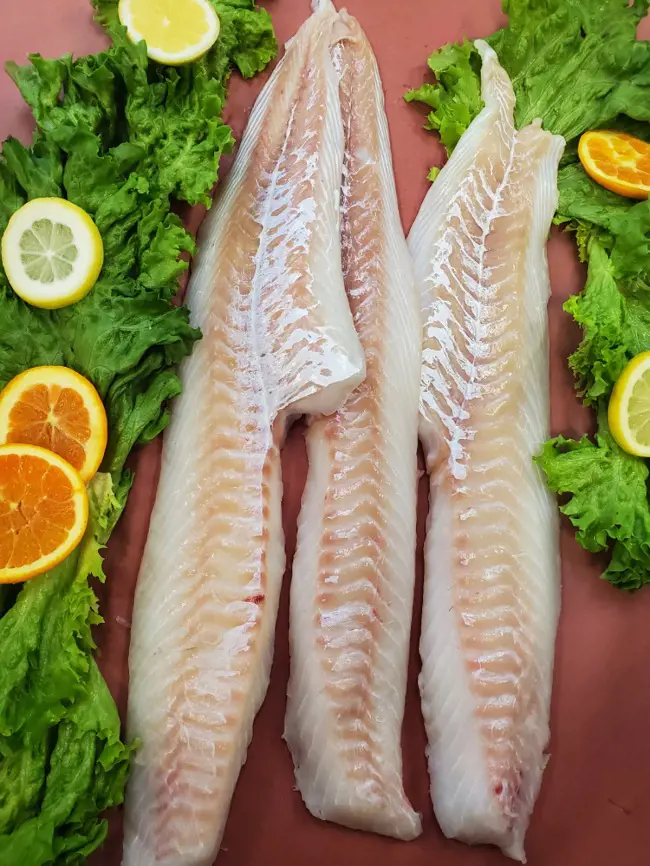
Cod is fish with white flesh and mild flavor that is packed with lean protein, creatine, vitamin B complex, and minerals. This fish is not considered as healthy food but it is high in protein and low in calories and fat.
A 100 grams of cod provides 95 calories, 20g of protein, 1.4-2.3 gm of creatine, and less than 1 gm of fat. This type of fish is affordable and can also be used as cod liver oil capsules as supplements.
9. Pumpkin Seeds
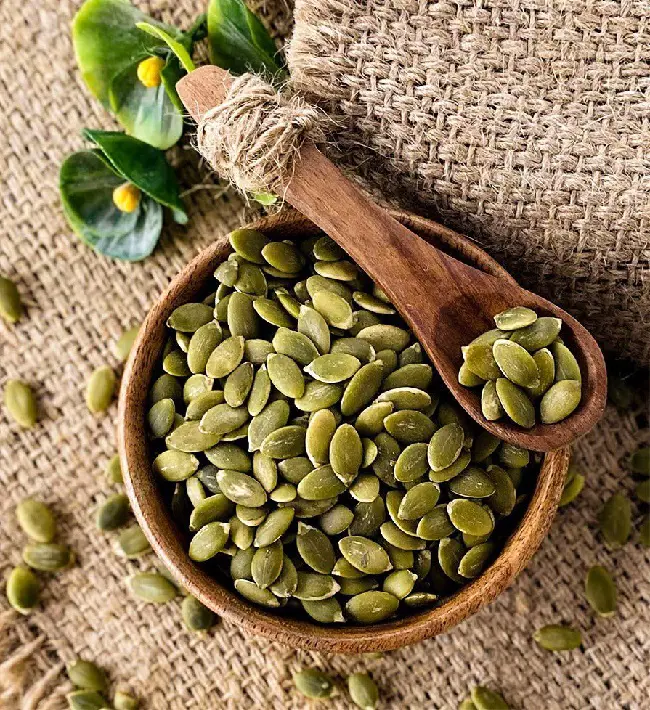
Pumpkin seeds are creatine rich foods as they are a good source of creatine-producing glycine and arginine and are nutrient-dense as well as contain a high amount of methionine. It contains 7.4 grams of creatine per 100g of pumpkin seeds.
The health benefits of pumpkin seeds are remarkable and they can be consumed by those people who are vegan or do not prefer eating any kind of meat. Various studies have suggested that a diet rich in plant-based foods and low in refined and processed foods helps in reducing the risk of chronic diseases.
10. Sheep Meat
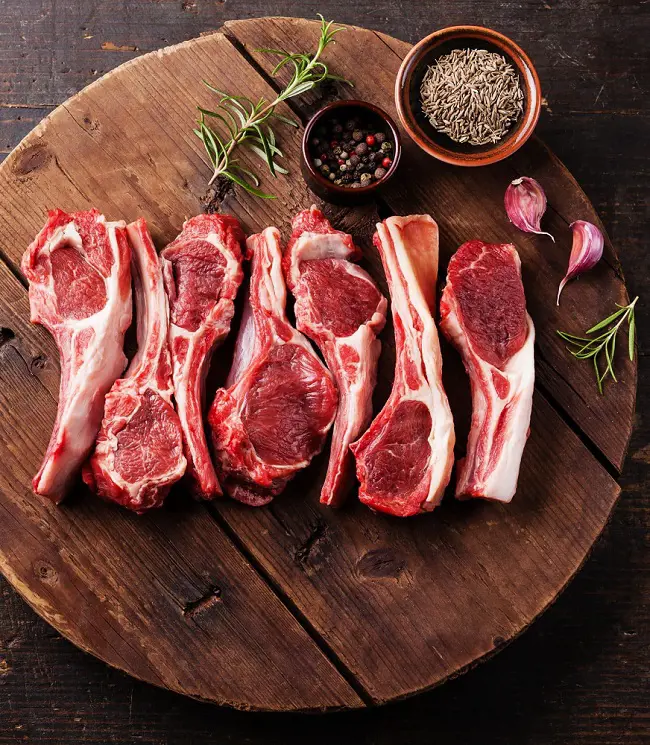
Sheep meat also falls under the category of red meat, which like beef, is rich in heme iron. Sheep meats are mostly classified into two types: Lamb and Mutton. Lamb is generally much more tender meat than mutton and both of them are rich in protein and fat.
Both lamb and mutton are high in protein and contain all nine essential amino acids that are also rich in vitamins and minerals. While the exact amount of creatine in these meats is not certain, it is estimated to be around 4.5 to 5 grams per kilogram of uncooked meat.
11. Walnuts
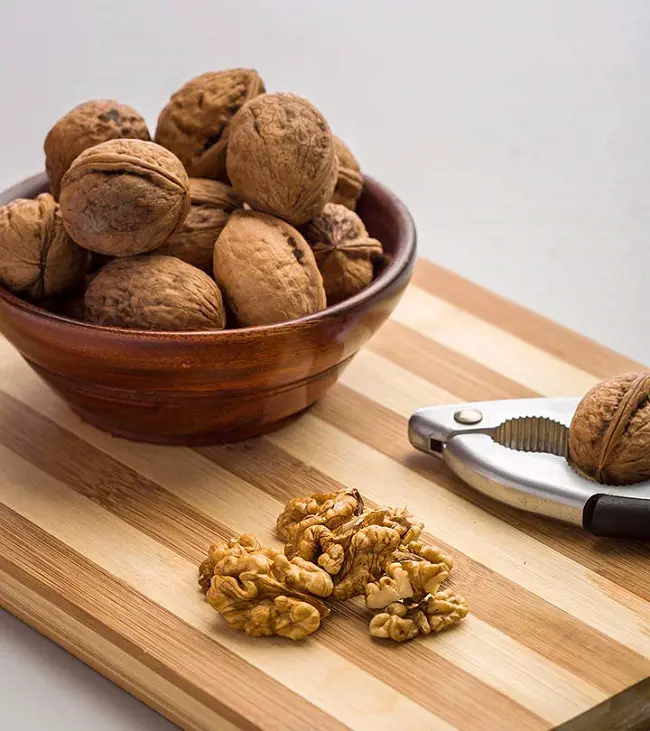
Walnuts are a great addition to any diet as they are packed with nutrients. They contain arginine, a type of amino acid, and a serving of 28 grams provides 4.3 grams of protein, 18.5 grams of fat, and 3.8 grams of carbohydrates. They are also an excellent source of omega-3 fatty acids, making them an ideal snack for fitness enthusiasts and bodybuilders.
Additionally, every 100 grams of walnuts contain 3.3 grams of creatine. To improve their digestibility and reduce bloating, it is recommended to soak the walnuts in water for 24-48 hours to remove phytates and enzyme inhibitors. After soaking, dry the walnuts either in the oven or a dehydrator.
12. Eggs

Eggs are a great source of nutrition and is one of the most common food that is available worldwide. They contain a high amount of protein, vitamin D, Vitamin A, and Vitamin B12, which is necessary for healthy development.
However, eggs contain only a small amount of creatine, approximately 0.1 to 0.3 grams per yolk. Even though the creatine content in eggs is relatively low compared to meat and fish, they are still a healthy source of nutrition. If you are not into fitness or bodybuilding, then this can definitely aid in everyday lifestyle.
13. Tofu
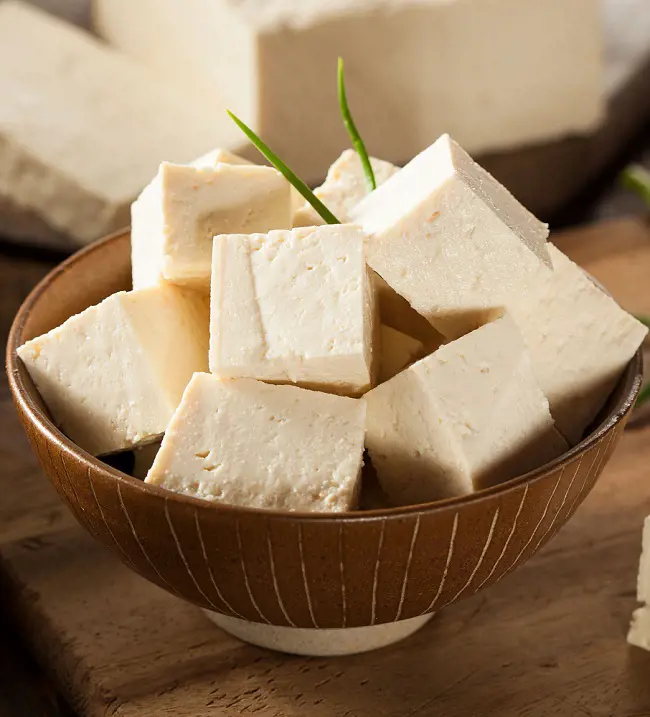
Tofu is a common soy product originating in Asia. It is made by curdling fresh soymilk and is pressed into blocks or pieces. It is an incredible source of essential nutrients and micronutrients like selenium, manganese, and calcium and is a good source of proteins, especially for vegans and vegetarians.
It contains about 1.34 to 2 grams of creatine per 100 grams of serving. There are various other soy products and supplements that are used by vegans and bodybuilders to get the required creatine to their bodies. Moreover, it has various health benefits and improves kidney function by higher levels of creatinine clearance.
14. Vegetables

Vegetables like spinach and broccoli a highly nutrient-dense leafy green vegetables that provide numerous health benefits. These vegetables contain essential sources of vitamins like Vitamin K, A, and C, along with loaded fiber, iron, and calcium.
As vegetables are high in nitrates, they can help to improve athletic performance and helps to enhance muscle size, strength, and power. Although the creatine content in vegetables is typically low it contain 0.04 grams to 0.98 grams. So, Adding a variety of vegetables to your diet ensures a diverse range of nutrients, including small amounts of creatine.
15. Deer Meat
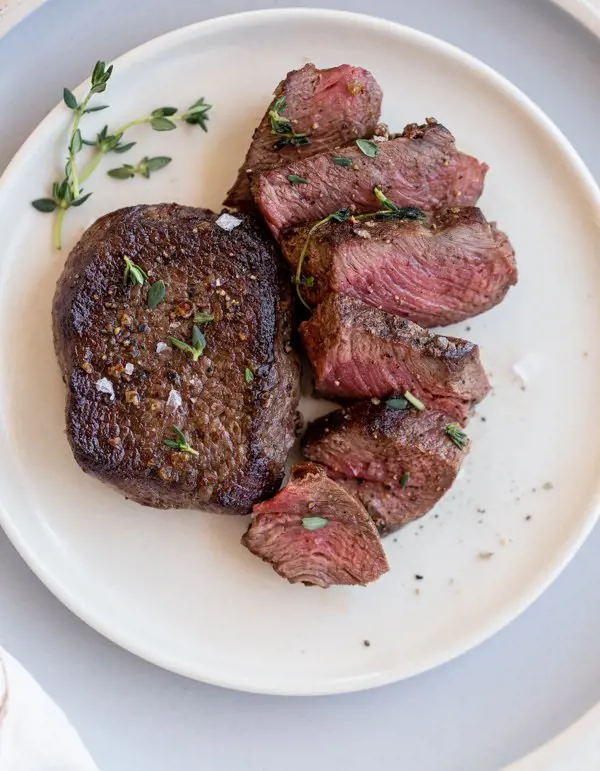
Deer meat also known as Vension has 50% less fat than beef, which makes it a healthier red meat alternative. It is low in fat and high in creatine, and protein, and is also a rich source of omega 3 and omega 6 fatty acids.
A 100 gram of deer meat provides around 4-5 grams of creatine. This makes it a great choice for someone trying to build lean muscle. However, Venison is quite expensive as compared to other red meat like beef and pork but given its nutritional benefits, it is a good investment for anyone who wants to maintain a healthy and balanced diet.
16. Rabbit Meat
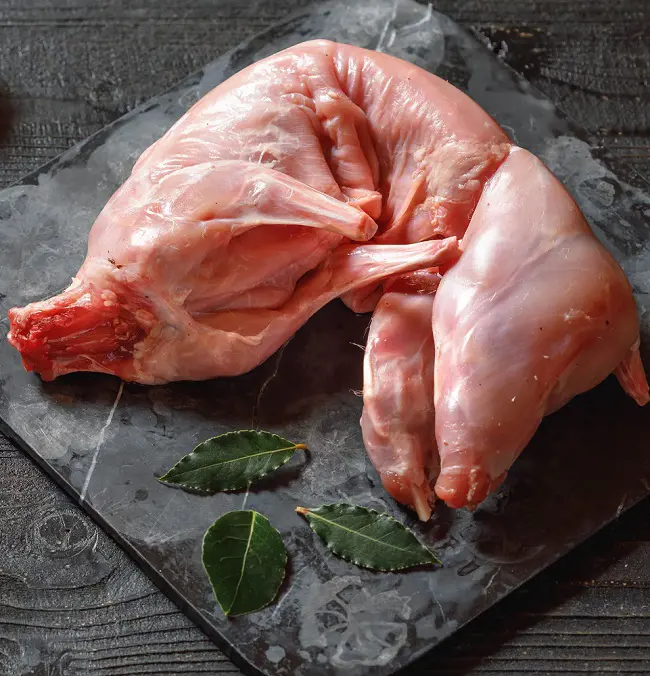
Rabbit meat is a white meat that will provide creatine along with a high amount of proteins and minerals that are excellent for physical activity. It is extremely rich in vitamins and will help reduce fatigue and tiredness as well.
This white meat contains an average of 3.5 grams of creatine per kilo and is similar to chicken and turkey, but it's a little darker and has a more rich flavor. This heart-healthy option is a versatile food that can be used in a variety of dishes including stews, casseroles, and even burgers.
17. Cheese
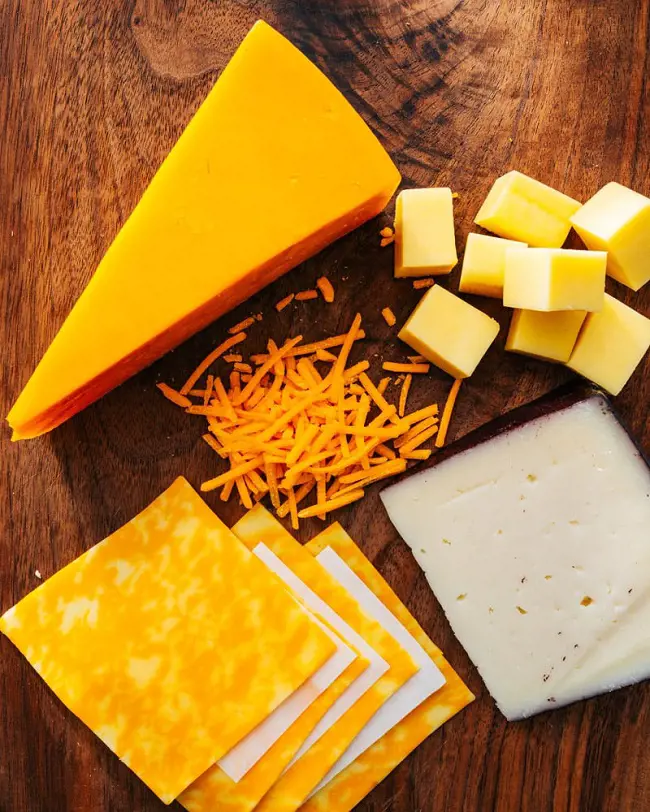
Cheese is a good source of protein that can help build muscles as it contains all the essential amino acids that are considered to be the building blocks of muscle tissues. In fact, the study has proven that the parmesan cheese has the highest content of creatine.
While the exact amount of creatine in cheese has not been clinically calculated, it is estimated that cheeses like Parmesan, Romano, Gruyere, Swiss, Edam, and Gouda are estimated to contain between 2 to 3 grams of creatine per 100 grams of cheese.
18. Beans
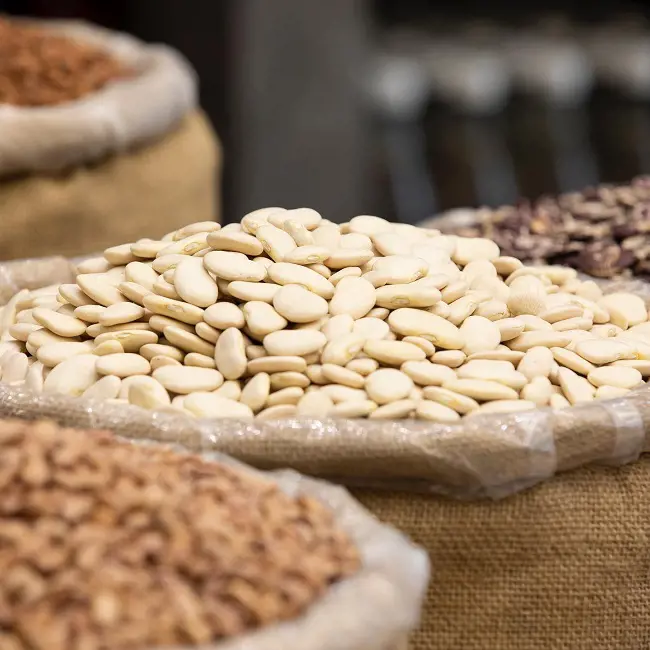
Beans are not only a great source of protein but they are actually a great source of various important nutrients. Beans such as kidney beans, white beans, and lentils are popular among people and are considered good choices for maintaining a balanced diet.
Per 100 grams of beans, it contains 0.7 to 3 grams of creatine that can help you build muscular strength and energy production. So, if you are looking for a foot that will help you build healthy muscle mass then this can be a great choice, especially for those who do not consume meats and fish.
19. Milk
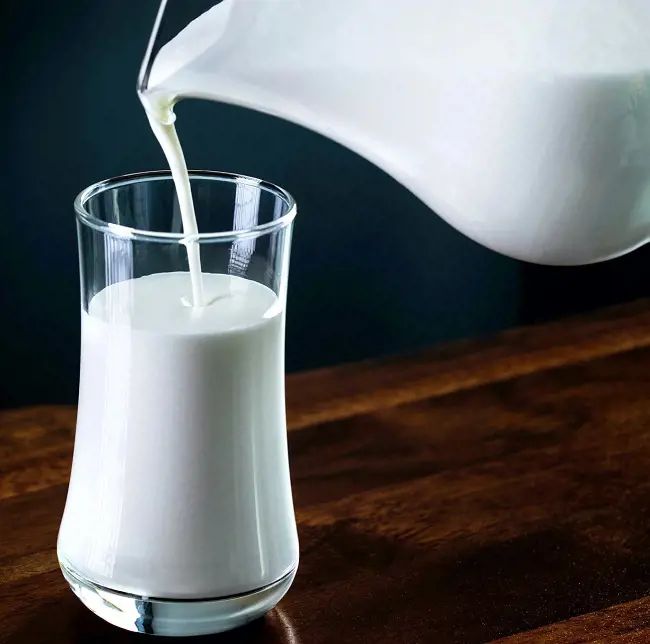
Milk is a rich source of protein, it offers approximately 1 gram of protein per ounce. A glass of milk includes glycine, methionine, and arginine which are required for the formation of creatine in the body to help you grow and build strong muscles.
Per 100 grams of milk, only 0.02 grams of creatine is found in the milk. Although it may not be the go-to choice for bodybuilders or gym-goers, incorporating milk into a balanced diet is highly recommended according to various research and studies.
20. Whole Grains
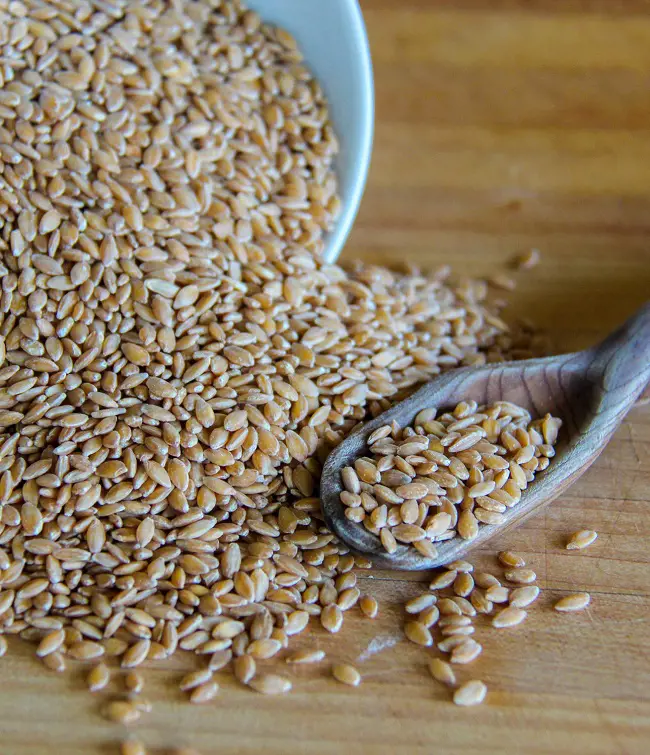
Whole grains such as quinoa, brown rice, and barley contain small amounts of creatine but are considered one of the healthy options to incorporate into your daily diet. These nutrient-dense grains can help by providing a variety of health benefits, and provide you with a variety of micronutrients despite containing a low amount of creatine.
It contains from 2.6 grams to 0.50 grams of creatine per 100 grams of serving. Consuming them in moderation on a daily basis may help increase your energy levels and provide up to 50% of your recommended daily intake of creatine.
Benefits Of Creatine
There are various benefits of creatine be it from natural food sources or from other supplements. Here are some of the most notable advantages of creatine for human body:
- Creatine helps your muscles store more energy which means you can exercise for a long duration.
- Creatine also enhances muscle growth and strength by helping the body by creating essential proteins.
- Creatine immensely builds your performance in physical activity and exercise by providing energy for your muscles during high-intensity workouts.
- Creatine improves brain function by contributing to higher levels of the neurotransmitter acetylcholine.
- Creatine has also been shown to improve heart health by reducing blood pressure and cholesterol levels.
Creatine Supplements Vs. Natural Creatine
It can be extremely challenging for those who follow strict diets or have a certain dietary preference to obtain sufficient amounts of creatine only from food sources. So, in order to fill these gaps and ensure good creatine intake, supplements are essential for athletic performance and better health.
However, the fact that supplements can be expensive, and unless you are doing high-energy tasks, it can actually be harmful to consume creatine more than needed. Those who are not into bodybuilding and consume meat and fish on a regular basis are not at risk of needing supplements.
But, if you are vegan or vegetarian then it might be difficult to get enough creatine just from vegetables or fruits. in which case you should start taking supplements after consulting a nutritionist.
Recent posts
Nutrition
Nutrition
16 Benefits Of Coriander That Will Surprise You
Abundant in nutrients and antioxidants, coriander is an annual herb with a characteristic aroma that is extensively used around the world. Both coriander leaves (also called cilantro) and seeds are used in various cuisines around the world. Known fo...
Nutrition
Chia Seeds Benefits: 15 Reasons To Eat These Tiny Seeds
Chia seeds are tiny edible seeds obtained from the plant known as "Salvia hispanica", belonging to the mint family. Oval, gray, and filled with black and white spots, these small seeds are highly valued for their abundant nutrients and health be...
Nutrition
How Much Calcium Is Actually Needed?
Calcium is a mineral associated with bones, muscles and the nervous system in the body. Current dietary guidelines suggest different Recommended Dietary Allowances(RDAs) for adult males and females, with 1000mg being optimal for males and 1200mg for...
Nutrition
B12 Vitamin Food Sources: A Comprehensive Guide
Vitamin B12, an essential nutrient, plays a crucial role in various bodily functions, including red blood cell production, nerve function, and DNA synthesis. While animal-based foods are the primary sources of B12, certain fortified plant-based foods...
Nutrition
What Foods Are High In Cholesterol? 20 Foods To Avoid
Animal products like meat, eggs, milk, and cheese are sources of dietary cholesterol, unlike plant-based foods. For those aiming to lower their cholesterol intake, it's essential to be mindful of animal-based food choices. While some high-cholesterol...
Nutrition
18 Fat Burning Smoothies For Weight Loss
The weight loss journey is tough if you have to get on the same path day after day, facing cravings and temptations along the way. We suggest you stop making it a monotonous struggle and make it a flavorful adventure instead. One of the easiest and m...

